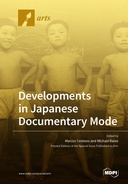Explore

Developments in the Japanese Documentary Mode
0 Ungluers have
Faved this Work
Login to Fave
Writing on Japanese cinema has prioritized aesthetic and cultural difference, and obscured Japan's contribution to the representation of real life in cinema and related forms. Donald Richie, who was instrumental in introducing Japanese cinema to the West, even claimed that Japan did not have a true documentary tradition due to the apparent preference of Japanese audiences for stylisation over realism, a preference that originated from its theatrical tradition. However, a closer look at the history of Japanese documentary and feature film production reveals an emphasis on actuality and everyday life as a major part of Japanese film culture. That 'documentary mode' – crossing genre and medium like Peter Brooks' 'melodramatic mode' rather than limited to styles of documentary filmmaking alone – identifies rhetoric of authenticity in cinema and related media, even as that rhetoric was sometimes put in service to political and economic ends. The articles in this Special Issue, ‘Developments in the Japanese Documentary Mode’, trace important changes in documentary film schools and movements from the 1930s onwards, sometimes in relation to other media, and the efforts of some post-war filmmakers to adapt the styles and ethical commitments that underpin documentary's "impression of authenticity" to their representation of fictional worlds
This book is included in DOAB.
Why read this book? Have your say.
You must be logged in to comment.
